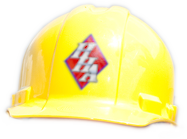source credit: Deposit Photos
Are you in the market to improve your home’s energy efficiency? Air sealing is an excellent starting point. Your home’s heating and cooling system can account for roughly 43 percent of your monthly energy bill, so you can save a lot of money by ensuring that as much of your conditioned air as possible remains inside your home, as opposed to leaking outside.
You may already know where some air leakage occurs in your home, such as an under-the-door draft or windows. With so many ways for the conditioned air in your home to escape, it can be difficult to find and seal every source.
Here are some of the most common warning signs we find in homes that have air leaks—and what you can do about them.
My Home’s HVAC System Is Constantly Running
If your home has a lot of air leaks, your HVAC system will struggle to maintain the temperature setting on your thermostat. When your conditioned air is constantly being replaced by unconditioned outdoor air, your HVAC system will have to work extra hard to keep the temperature comfortable in your home. When the heating or cooling system keeps running and takes forever to meet your thermostat setting, you may have yourself a leaky home.
My Monthly Utility Bills Increase In Winter and Summer
As we just mentioned, if your home has leaks your HVAC system motors will have to run longer and harder. A byproduct of an overworked HVAC system is a large energy bill at the end of the month. It’s a vicious cycle in which you pay higher prices for heating or cooling that can barely keep you comfortable. Many homeowners don’t even think about how long or hard their HVAC system is working, but if you’re noticing higher than usual energy bills, this will be worth paying attention to.
My Home Has Uneven Temperatures In Each Room
There are several factors that can lead to uneven temperatures, but air leaks are one of the most common ones. You can tell if you have a leaky room by paying attention to how hard it is to raise and lower the temperature. If your thermostat happens to be located in a leaky part of your house, your HVAC system could be severely impacted and sent into a short cycle. Correcting uneven temperatures in a home can often be compared to solving a Rubix cube, adjusting the temperature for the leaky rooms will often disrupt the temperature in another room.
I Feel Air Drafts In My Home
While the most common air leaks are found around windows and doors, the biggest air leaks are usually between your living space and your attic or crawlspace. A window draft might be more obvious when you’re sitting near a window. But cumulatively, the leaks from your attic, ductwork, and crawlspace have a bigger impact on your home comfort. Regardless of the source, if you’re feeling air drafts, your home will benefit from air sealing.
Mice Keep Getting Into My Home
We are not a professional exterminator, we do know that one of the best ways to rid your home of rodents is to seal off their access points. The thing about mice is that they can squeeze through the tiniest of holes. Sealing air leaks may not close off every rodent entry point into your house, but it’s sure to still help. Homeowners will often seal air leaks to feel more comfortable and lower their energy bills, but don’t be surprised if you find your pest problems disappear too!
My Home Is Very Humid or Dry
We are no stranger to a humid climate, right? Thankfully air conditioners have the ability to not only cool the air inside your home but lower the humidity levels as well. However, when a house is suffering from air leaks, humidity can seep back into your home just as fast as the A/C can remove it. On the same topic, leaky homes tend to get uncomfortably dry during the winter months. Regardless of the season, it’s all because excessive outdoor air is entering your home.
My Allergies Are Really Bad Inside My House
If you or someone in your home suffers from allergies or other respiratory conditions, air leaks could be putting your comfort at risk by letting airborne outdoor contaminants into your home. As outdoor air infiltrates your home, it can bring with it all sorts of air particles such as dust, pollen, mold, and other irritants. If you live near a busy road, air leaks can even allow vehicle exhaust into your home. If your home has fiberglass insulation between your living space and the outdoors, the infiltrating air that passes over that insulation can bring in tiny particles of airborne fiberglass too. The scary part is that you can be breathing in all of these particles even with all the doors and windows closed if your home has air leaks.
What Should I Do About Air Leaks?
So you think your home may have air leaks. What should you do? The first step is to confirm if air leaks really are the source of your discomfort or energy efficiency problems. If they are, the next step is to identify the biggest, most troublesome leaks. That way, you can prioritize which ones to seal.
source credit: https://bit.ly/35odsWz


